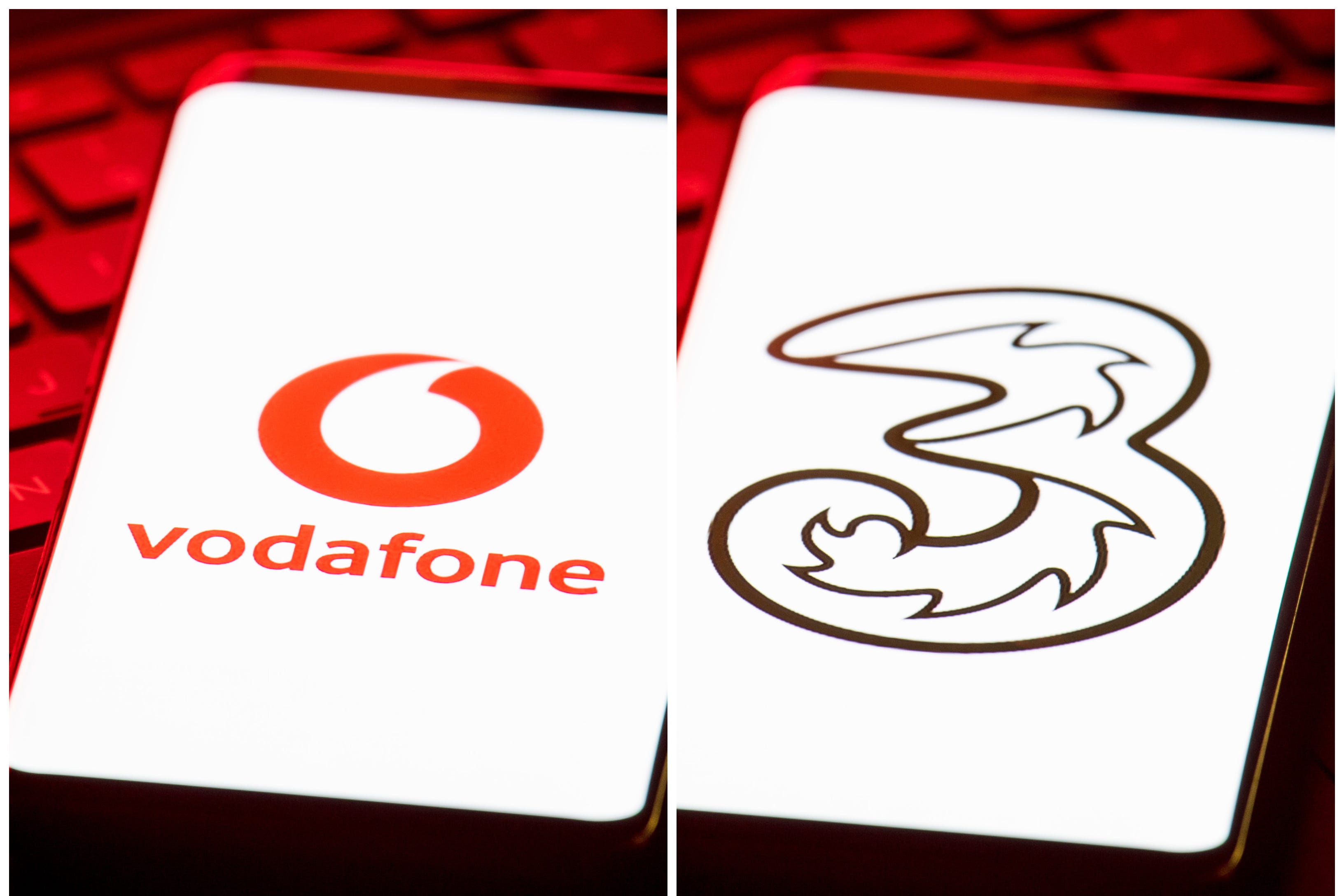Millions of Vodafone and Three customers could see their bills rise, officials warn
New deal would create the country’s biggest network – but could reduce quality of coverage, regulator says

Tens of millions of Vodafone and Three customers could see their prices rise because of a planned merger between the two, officials have warned.
The deal could also lead to reduced service for those on the networks, according to the UK’s competition watchdog.
But the companies said that they disagreed with the findings from the Competitions and Markets Authority, or CMA, which has been investigating the £15 billion deal since it was announced last summer. They say the deal would allow for more investment and improve the service.
A tie-up would create the UK’s largest mobile phone network with some 27 million customers, something the firms argue would allow them to increase investment and better compete with major rivals.
But the regulator said it was worried that a merger could lead to tens of millions of people having to pay more for their mobile phone bill, or see customers get a reduced service such as smaller data packages in their contracts.
The CMA said it had particular concerns that price hikes or reduced service would affect people least able to afford a mobile phone.
Customers could end up paying more for improvements to services they do not value, it said.
Nevertheless, the probe also found the merger could improve the quality of mobile networks and accelerate next-generation 5G services being rolled out.
But the CMA had concerns the firms were overstating claims that they will plug £11 billion worth of investment in the UK’s infrastructure, as there might not be the incentive to follow through with the promises once the merger completes.
It also highlighted the fact that combining the firms would reduce the number of network operators from four to three, with EE operator BT and Virgin Media-O2 the remaining rivals.
This could negatively impact so-called virtual operators like Sky Mobile, Lyca Mobile and Lebara which “piggyback” off the big operators to provide their own mobile services.
Stuart McIntosh, chair of the inquiry group leading the CMA’s investigation, said: “We’ve taken a thorough, considered approach to investigating this merger, weighing up the investment the companies say they will make in enhancing network quality and boosting 5G connectivity against the significant costs to customers and rival virtual networks.”
He said it will now consider how the firms plan on addressing the CMA’s concerns, including by “guaranteeing future network investments”.
Vodafone and Three UK have the opportunity to share solutions before the CMA issues a final report in December.
But the businesses say they disagree with the competition regulator’s concerns and that the merger should be approved because it will fix the UK’s “dysfunctional” mobile market.
They also dispute the finding that prices will increase, arguing that prices will either stay broadly the same or actually drop post-merger.
Margherita Della Valle, Vodafone’s chief executive, said: “Our merger is a catalyst for change.
“It’s time to take off the handbrake on the country’s connectivity and build the world-class infrastructure the country deserves.
“We are offering a self-funded plan to propel economic growth and address the UK’s digital divide.”
Robert Finnegan, Three UK’s chief executive, said: “The current UK four-player mobile market is dysfunctional and lacks quality competition with two strong players and two weak players.
“This is reflected in the current state of the UK’s digital infrastructure that everyone agrees falls well short of what the country needs and deserve.”
The firms also stressed it was not a final decision and they plan on working with the CMA to reassure it of their plans and secure approval.
Additional reporting by agencies